
The Plant That Helps Every Part of The Body At Once
Updated: 13 March 2025
While some medicinal plants benefit only one organ or system, this plant helps every part of the body at once. Known as adaptogens, they help us respond to stress and illness by restoring our biological ability to cope and adapt. One such plant is fenugreek (trigonella foenum-graecum).
Originally from Asia and southern Europe, fenugreek is a demulcent (from the Latin word demulcere, which means “to caress”). By loosening mucus, it soothes digestion, reduces gas, and minimizes allergic reactions. Seeds contain small amounts of l-tryptophan, which your body converts into serotonin for improved mood and sleep.
These are only examples of how fenugreek can help restore health and balance to your system. This article explores the full capabilities of the plant that helps every part of the body at once.
Fenugreek – an Overview
An annual herb, fenugreek has light green leaves and small white flowers. Its yellowish-brown seeds are flat and aromatic.
These seeds, which are usually dried and ground up, are the most commonly used part of the plant (although you can also use the leaves in cooking). They have a taste and aroma reminiscent of maple syrup and have been used for cooking and medicinal purposes for centuries. It’s also a key ingredient in popular spice blends, used in soaps and cosmetics, and added as a flavoring agent in foods and beverages.
Fenugreek was traditionally used to manage diabetes and increase milk supply in breastfeeding women in North Africa, Asia, and southern Europe. Today, it is promoted as a dietary supplement for diabetes, menstrual cramps, and other conditions as well as for stimulating milk production in nursing mothers.
Below is an overview of the many ways you may use fenugreek to address health issues and/or maintain overall balance.
⇒ Medicinal Plant Map for Every State
Identifying Fenugreek
Fenugreek (Trigonella foenum-graecum) is an annual herb in the legume family, cultivated for its aromatic seeds and leaves, which are used in culinary and medicinal applications. To identify fenugreek:
Leaves: The plant has trifoliate leaves, each consisting of three small, obovate to oblong leaflets.
Flowers: Fenugreek produces small, white flowers that are less than 1 centimeter in length.
Seeds: The seeds are yellowish-brown, flat, and aromatic, each less than 0.5 centimeters long, with a deep furrow running along one side.
Helps Improve Blood Sugar Levels
During one eight-week study, researchers found that ingestion of fenugreek seeds soaked in hot water could be a potential therapy for type 2 diabetes. Eleven out of 18 participants ate fenugreek seeds soaked in hot water, and seven ate the seeds mixed with yogurt. Blood glucose levels improved significantly in those eating the seeds soaked in hot water compared to those consuming the seeds mixed with yogurt, so consider adding pre-soaked seeds to salads, sandwiches, and stir-fries.
May Improve Cholesterol Levels
People with heart conditions, such as hardening of the arteries and high cholesterol and triglyceride levels, seem to benefit from using fenugreek, which also appears to have the potential to help diabetics with cholesterol issues.
One study found that 2.5 grams of fenugreek supplement administered twice daily for three months significantly lowered cholesterol and triglycerides, without affecting HDL cholesterol, in people with non-insulin-dependent diabetes, so incorporating fenugreek recipes into your diet can make a positive difference in cholesterol levels.
Can Improve Digestive Problems
Numerous digestive problems can be treated with fenugreek, including upset stomach, constipation, and inflammation of the stomach. Researchers have found that fenugreek is one of the foods that relieve constipation, due to its water-soluble fiber. Because of its anti-inflammatory properties, it is often incorporated into ulcerative colitis diet plans, so incorporate fenugreek recipes into your diet whenever possible.
Related: Kill Hunger With This Herb
Reduces Inflammation in the Body
Excessive inflammation in the body can lead to health issues like mouth ulcers, arthritis, kidney ailments, bronchitis, and even cancer. Fenugreek seeds have anti-inflammatory properties that have been tested in rats and mice. Researchers studied the antioxidant and anti-inflammatory effects of fenugreek mucilage on arthritic rats and confirmed its ability to fight inflammation, suggesting that this herb could be an effective natural arthritis treatment as well.
Can Help Treat Skin Conditions and Wounds
Fenugreek can also be used externally after it is warmed to reduce inflammation. You can make a poultice to treat wounds, muscle swelling, swollen lymph nodes, eczema, and sciatica by grinding one tbsp of fenugreek seeds into powder, mixing it with warm water, and applying it to a clean cloth. Put the cloth on the affected area and leave until cooled.
If you have dandruff, try soaking 2 tbsp. of fenugreek seeds overnight. In the morning, grind the seeds into a moist paste, apply it to the scalp, and wash off after half an hour.
May Support Milk Flow During Breastfeeding
Breastfeeding women with low milk supply may also benefit from fenugreek. As a galactagogue, it increases breast milk production by stimulating the milk ducts, with some women reporting increased milk flow in as little as 24 hours.
While all lactation issues should be investigated by a healthcare provider, the use of fenugreek for this condition has been referenced in some scientific journals. One ayurvedic recipe recommends soaking a tbsp of fenugreek seeds overnight in a cup of water and boiling the mixture for several minutes in the morning. Strain and drink every morning until you see results.
Can Boost Testosterone
Fenugreek can increase testosterone levels. Males need healthy levels of this hormone for a variety of bodily functions. In a study of 100 male participants aged 35 to 65, they addressed testosterone deficiency by taking a supplement containing fenugreek for 12 weeks. By the end of this period, serum testosterone levels and sperm counts increased, so men with lower testosterone levels should consider adding fenugreek supplements to their healthcare routine.
May Improve Acne
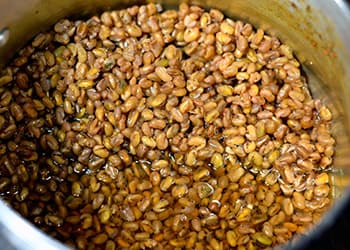 As a dietary supplement, fenugreek works within the digestive system to eliminate all of the toxins, including those that cause acne. To create a cleaning face mask, boil 1/4 cup of seeds for five minutes and then let them soak overnight. The next day, grind them into a paste and apply it to your face for 15 minutes before washing off. Repeat a few times a week.
As a dietary supplement, fenugreek works within the digestive system to eliminate all of the toxins, including those that cause acne. To create a cleaning face mask, boil 1/4 cup of seeds for five minutes and then let them soak overnight. The next day, grind them into a paste and apply it to your face for 15 minutes before washing off. Repeat a few times a week.
May Relieve Pain
Fenugreek seeds have been used for centuries to relieve cramps and pain. Historically, fenugreek seed extracts were taken to reduce pain during childbirth and menstruation. The consumption of fenugreek seed tea during menstrual periods is still used to relieve cramps, nausea, and fatigue.
Minerals and nutrients present in the seeds are thought to be responsible for these properties. As well as promoting hemoglobin synthesis in the body, they provide energy, which regulates women’s overall health during menstruation. According to RXList, women with painful menstrual periods can take 1800-2700 mg of powdered seeds three times per day for the first three days, followed by 900 mg three times daily for the remainder. After two menstrual cycles, improvement is often noted.
A variety of health benefits are associated with fenugreek seeds. They are widely available, easy to prepare and can be consumed in several ways. Consequently, incorporating fenugreek seeds into your diet will have many positive effects on your health and, by extension, on your life.
⇒ The Best Natural Painkiller That Grows in Your Own Backyard
Frequently Asked Questions (FAQ)
1. What are the primary uses of fenugreek?
Fenugreek is used both culinarily and medicinally. Culinarily, its seeds and leaves add flavor to various dishes. Medicinally, fenugreek has been traditionally used to manage blood sugar levels, improve cholesterol profiles, aid digestion, and reduce inflammation.
2. How can fenugreek be consumed?
Fenugreek can be consumed in several forms, including seeds, leaves, powders, and supplements. The seeds are often used whole or ground as a spice, while the leaves can be used fresh or dried in cooking. Fenugreek supplements are also available for those seeking concentrated doses.
3. Are there any side effects associated with fenugreek?
While fenugreek is generally safe for most people, excessive consumption may lead to digestive issues such as bloating, gas, or diarrhea. It’s advisable for pregnant women to consult a healthcare provider before using fenugreek, as it may have uterine stimulant properties. Additionally, individuals allergic to legumes such as peanuts, chickpeas, or soybeans should exercise caution.
4. How should fenugreek be stored?
To preserve its potency and flavor, store fenugreek seeds and leaves in an airtight container, away from direct sunlight, heat, and moisture. Proper storage can extend their shelf life for up to a year.
5. Can fenugreek be grown at home?
Yes, fenugreek is relatively easy to cultivate in home gardens. It prefers fertile, well-draining soil with a pH level between 6 and 7 and requires at least 4 hours of sunlight daily. Regular watering is essential, but avoid overwatering to prevent root rot.
6. Is fenugreek safe for everyone?
While fenugreek is safe for most individuals, those allergic to legumes should exercise caution. It’s also recommended for individuals on blood-thinning medications or those with diabetes to consult a healthcare provider before incorporating fenugreek into their routine.
7. How long does it take for fenugreek to show health benefits?
The time frame for experiencing health benefits from fenugreek varies depending on the individual and the condition being addressed. Some effects, like improved digestion, may be noticed within a few days, while others, such as changes in blood sugar levels, might take several weeks of consistent use.
8. Can fenugreek be used in cooking?
Absolutely. Fenugreek seeds are commonly used in various cuisines, especially in Indian dishes, to add a unique flavor. The leaves, known as methi, are also used in cooking, offering a slightly bitter taste and are rich in nutrients.
Incorporating fenugreek into your diet or wellness routine can offer numerous health benefits. However, it’s essential to use it responsibly and consult with a healthcare provider if you have any underlying health conditions or concerns.








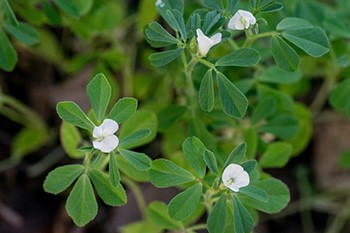
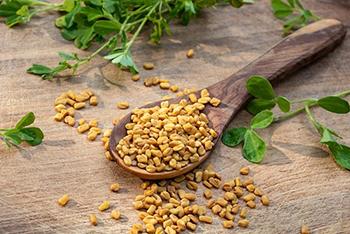
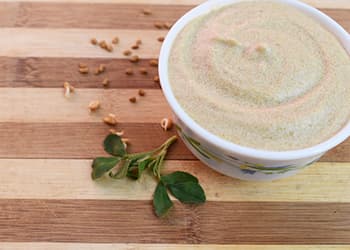
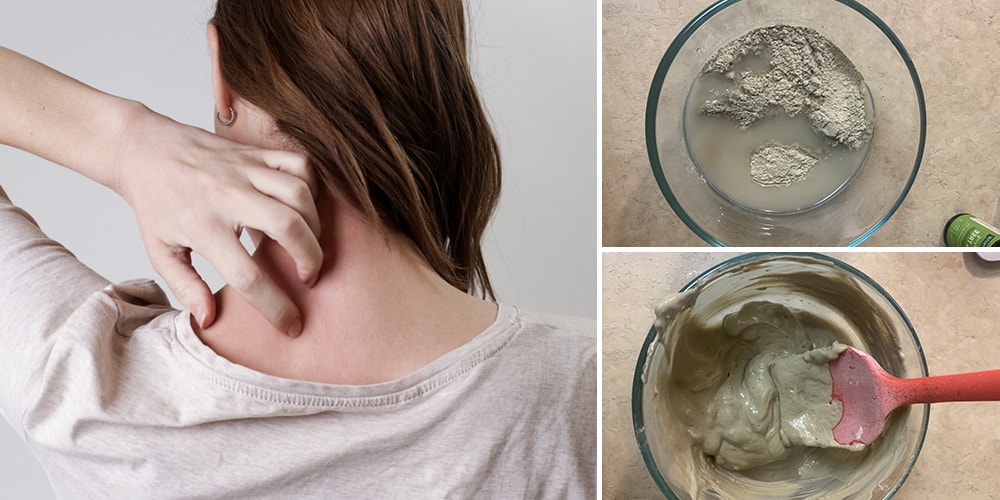
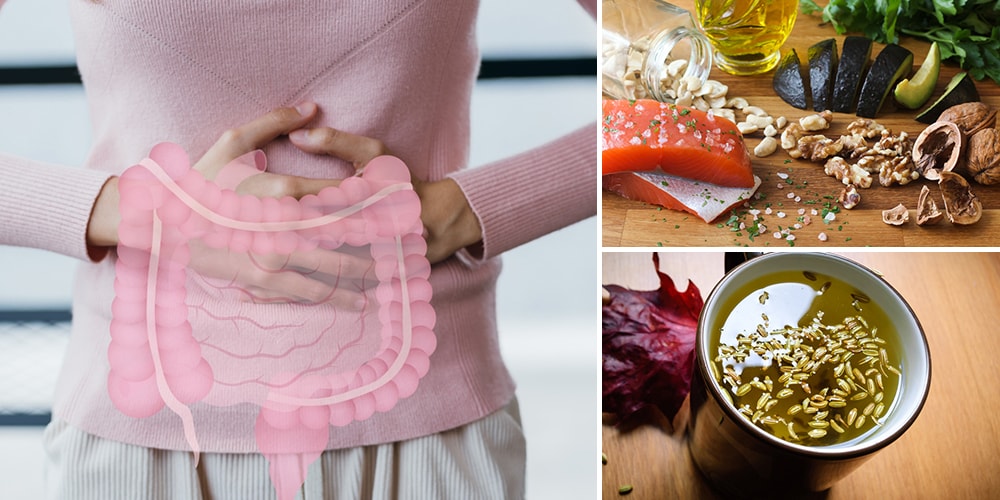

Where can I find this plant
You can find the seeds at health food stores in capsules.
Amazon
Try these:
To eat –
https://amzn.to/3BUfjmV
To plant-
https://amzn.to/3xCVdeB
You can buy seeds at Bakers Creek Heirloom Seeds. I have bought seeds from them with good success.
On a Yahoo forum last century, someone mentioned an off topic comment. He took Fenugreek for his sinuses. He kept a jug of water in the refrigerator with seeds. Every day he would pour out a glass and them refill it. Every month he would dump it and start again with press seeds.
At the time I was miserable with sinus headaches all the time. The usual treatment was to ream out the sinus channels but that wasn’t always effective.
I went to a health food store and the seed capsules were cheap. I took two in the morning and two at night. A month later I noticed that I hadn’t had any headaches. I had a cold which is normal for me during the winter but no sinus problems. I still had bad post nasal drip but I could live with that.
I told other people about it and they passed along the information to other sufferers. Everyone got relief.
To the unknown poster years ago, Thank You!
Hello. Thank you so much for sharing this! Do you have the ratio of seeds to water for this or the measurements? I can’t wait to try it.
Our local herb shop recommended Fenugreek capsules for a brain fog issues I had some 20 years ago. They helped immensely. Since then we also take Fenugreek for sinus pressure and when we have colds. They make the colds much more mild so I totally agree with you.
What was the Mg you took?
Can the seeds be germinated to grow at home? Or can it be grown outside of its native regions? Or are we relegated to purchasing seeds for use?
I’ve never tried growing them, but I have seen the seeds in my local garden centres before. If you have a decent growing season why not give it a try!
Saw the following on the net.
“Fenugreek plants thrive in full sunlight and cool temperatures. Fenugreek is grown in spring in warm climates, but can be grown all summer where summers are mild. Plant fenugreek seeds directly in the garden after frost danger has passed in spring, as the plants don’t tolerate transplanting.”
yes you can buy them and sprout them as well
I used it for breast milk production as a lactating mom years ago. Wonderful stuff.
hi there! I have fenugreek seeds that i use in recipes (very rarely) and that i occasionally make into sprouted seeds (for salads and such). My questions are: Is the seed the primary way to get these benefits? If so, do you have other ideas for using the seeds? Many thanks in advance.
Hi Nicole,
Raw fenugreek seeds may be soaked overnight, boiled or eaten raw for alleviating different health conditions. The ground form or powdered seeds are also consumed as a tea or applied to the skin and other affected areas that need healing. A decoction of fresh fenugreek leaves likewise cures many ailments.
Adding fresh leaves to soups, stews, and salad is popular among lactating women who wish to encourage breastmilk production.
I hope this helps.
Many blessings and good health!
Can you make a tincture with fenugreek seeds?
Can you use Fenugreek essential oil? Thank you for your advice!
Hi Kelly,
There’s a lot of confusion on herbs vs. essential oils and whether they can be used interchangeably or if substitutions can be made for one another.
Essential oils can be safe for internal use if you are using high-quality, organic, adequately tested, and sourced essential oils. If the essential oil says it is for “aromatherapy only” then do not use internally. Those types of oils have been blended with perfumes or toxins to achieve the aroma and are not safe for ingestion. If your oil says it is “natural” “organic” or “pure”, it may still have additives, so read the entire label to be certain the essential oil is fit for consumption.
Essential oils are 75 – 100 times more concentrated than whole herbs. One drop of essential oil could be equivalent to a handful of pounds of the herb. So ingesting the wrong amount of essential oils can burn the mucosa in your mouth, esophagus, gut lining, and beyond in the digestive tract.
Always ask your doctor or another medical professional when taking herbs or essential oils for health. Many herbs interact with prescription drugs and are not recommended for use by someone who is pregnant or nursing.
Many blessings and good health!
Thank you for the info 💕
Not in the Lost Book of Herbal Remedies. That was the first thing I went to for more info. 😊❤
Yes, I checked in my book as well. Disappointed that Fenugreek was not listed…
Do you have any idea how many mg of fenugreek is needed to see improvement?
Hi Lana,
Fenugreek doses vary based on the goals of supplementation.
New mothers that want to increase breast milk production should aim for 500-1000mg of fenugreek. Men who want to increase testosterone or libido could consider taking between 500-600mg of a standardized fenugreek formulation.
Fenugreek seeds are very versatile. They can be eaten as seeds, brewed into a tea, made into flour and baked into bread, or pressed into oil. Eating seeds or using fenugreek flour is the most effective form of fenugreek for blood sugar control. An oral dose of 2-5g of fenugreek seeds can help blood glucose levels for diabetics.
Many blessings and good health!
About How many seeds equal 2 to 5 grams?
Hi Tom,
5 grams = about 1 Teaspoon fenugreek seeds.
Is fenugreek safe to use during pregnancy? I am wondering if it might help with morning sickness.
I don’t know about fenugreek but you can get a homeopathic tincture called Nux Vomica for morning sickness, I used it when pregnant with my son and it worked amazingly well.
I take fenugreek capsules starting before spring and it stops me from getting hayfever. If I don’t used it I end up not only with bad hayfever but then asthma.
Hi Lynne,
Thanks for sharing how well fenugreek worked for you.
Considering fenugreek’s antioxidant and free radical-scavenging properties, it helps cells to avoid damage from reactive oxygen species when inflammation associated with allergies is high. Its astringent properties may also help drain inflammation in the sinuses and lungs, and break apart mucus trapped there.
Many blessings and good health!
Is there a better way to take it for say example my elderly Dad who’s cancer has returned and he is in a lot of pain and trouble now walking along with his ankles really swollen?
Can I grind Fenugreek seeds into powder for capsules to be taken internally? Or, do the seeds need to be soaked to get the benefits of them?
Hi Melanie,
Sure, you can make your own capsules and take them internally 🙂
Fenugreek is available as seeds, capsules, and tea. Because the seeds are bitter raw, fenugreek may be best for some to be taken in capsule form.
Many blessings and good health!
What is the difference between Fenugreek seeds vs leaves?
Hi Melanie,
Fenugreek leaves and seeds harbor many medicinal benefits.
Raw fenugreek seeds may be soaked overnight or boiled or eaten raw for alleviating different health conditions. The ground form or powdered seeds are also consumed as a tea or applied to the skin and other affected areas that need healing. A decoction of fresh fenugreek leaves likewise cures many ailments.
Adding fresh leaves to soups, stews, and salad is popular among lactating women who wish to encourage breastmilk production.
You can find more information about Fenugreek in the article below:
https://thelostherbs.com/fenugreek/
Many blessings and good health!
You still have not responded to my question? I am wanting to kkk bill is what is the best way to get the most of this to help my Dad’s cancer treatment and pain? Thanks 🙏🏻
Taken in pill form, is there a certain brand to buy?
Great information, thank you!
Where can you find the leaves?
Hi. I read s the comments with a but of salt . Sounds great .
I will look in my local Holland and Barrett shop tomorrow.
And because I have a few problems. I will give if a try .
Ps. Good read by the way.
i use in a tea and wondering if it is better to eat it after being soaked. which give u the most benefit. thanks
Sorry my phone messed up- meant to say which way is the best – in seeds, ground or ? To help with my Dad’s cancer and pain, getting into his blood to help get his red cell count better and cancer cells to die off. Thanking you in advance …
I wish the article would have told different forms and ways of using it like other Lost Herb articles do!